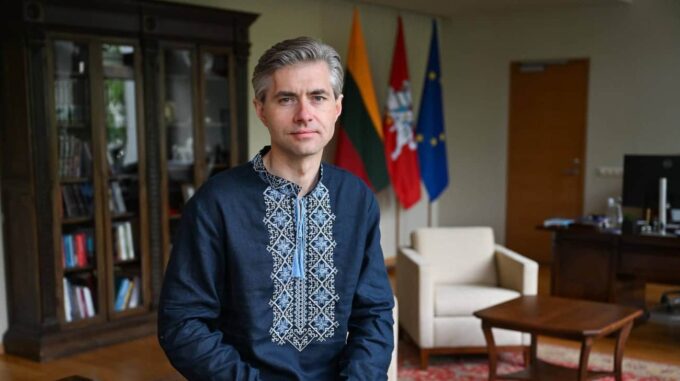Lithuania insists on strengthening sanctions by the European Union against Russia and calls for the implementation of measures that will genuinely shake the Kremlin leadership and deliver a substantial blow to it

Lithuania’s Foreign Minister, Kyprian Raduly, emphasizes that EU efforts should not only focus on formally extending the sanctions policy but also on creating real mechanisms of pressure that will hit key sectors of the Russian economy and defense. According to him, it is time to actively prepare for the introduction of the so-called 18th package of sanctions, which should become the next important step in the West’s efforts to deter Kremlin aggression. During the meeting of the EU Foreign Affairs and Defense Council in Brussels, the Lithuanian foreign minister highlighted that the current strategy of the Russian leadership to evade responsibility and delay sanctions processes must be ended. He underscored that deception, disorganization, and distraction are Vladimir Putin’s tactics, enabling him to avoid fair punishment, shift blame instantly, and continue his aggression. Raduly pointed out that the 17th sanctions package, adopted in May this year, has long lost its relevance and does not reflect the realities of the time. “We must act quickly and decisively. The next, 18th sanctions package, should target those key areas that are still untouchable for Russian financial structures and resources. These include energy sectors, especially gas and oil, as well as the nuclear industry. It is crucial to restrict financial flows to stop supporting Russia’s military machine,” the Lithuanian minister emphasized. According to Raduly, work on implementing new sanctions should begin without delay. “If we do not act now, our words and statements will lose credibility. We must send this message to the Kremlin so they do not once again hope to evade responsibility,” he stated. In general, considering the current situation, European leaders and experts agree that a reorientation of sanctions policy is essential. Where previously Ukraine and Western countries focused on restrictions against Russian banks and individual companies, it is now necessary to move towards more effective and destructive measures for the Russian economy. For example, within the framework of the 18th sanctions package, the United States is already consulting with European colleagues regarding restrictions on banks in third countries that support Russian military and defense projects. This concerns, in particular, financial institutions outside the European Union that actively support or cooperate with the Russian army and defense industry. Unfortunately, pro-Russian positions still persist in the global political arena. Former U.S. President Donald Trump, for example, is hesitant to introduce new sanctions against Russia, expressing the belief that there is currently a chance to reduce tensions and open negotiations. However, Trump does not rule out that in the future, sanctions policy could be intensified if the situation does not improve and Russia does not cease its aggression. This creates additional background for diplomatic and economic discussions on ways and means of pressure to end hostilities and stabilize the situation around Ukraine. Thus, opposition to and readiness for stronger sanctions are key elements of the current European Union foreign policy strategy and Ukraine’s partners in the fight against Russian aggression. The time for decisive decisions and effective mechanisms has come, and their implementation will determine the future security and stability of the region.

